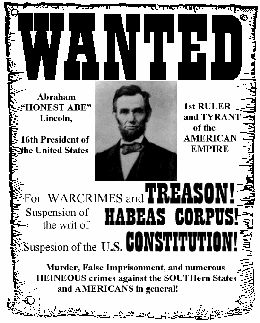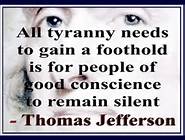A criticism was leveled at me the other day. A close friend said: “I don’t read your blog like I used to because you kind of recycle the same topics.”
I asked, “Which topics?” (somewhat defensively, because that had not occurred to me).
She said, “Poverty, Gay Rights, the Constitution, and Economics.”
My first reaction was quietly to myself: “Ooo! That sounds scholarly!” but quickly I recoiled outloud with, “Really?”
“Really. And since I know where you stand on all of it, it isn’t that interesting anymore.”
I started ruminating about the subjects in this blog, and I looked back over the past year and a half. There is no doubt that I write consistently about social programs, civil rights, constitutional interpretation, economics, and, I’d like to add history and inconsistencies within ideologies (conservatism and liberalism). I can defend myself by saying, “These are THE issues to define the parameters of everything,” but I began to question if there was any central point to these issues that connected them.
Life has this way of putting things in front of us when we’re open to seeing them.  I was with my sons at the Des Moines Science Center for an exhibit called “A Tyrannosaurus Named Sue” when the docent said: “The name ‘tyrannosaurus” means ‘Tyrant Lizard’ from the Greek ‘tyrannos’ and ‘sauros’.”
I was with my sons at the Des Moines Science Center for an exhibit called “A Tyrannosaurus Named Sue” when the docent said: “The name ‘tyrannosaurus” means ‘Tyrant Lizard’ from the Greek ‘tyrannos’ and ‘sauros’.”
Tyrant? Did he just say ‘tyrant’?
I hear that word a lot. Tea Partiers call President Obama a “tyrant.” I just finished a Lincoln biography where his critics from the South called him a “tyrant.” And I’ve been reading a lot, lately, about how the 2nd Amendment is what protects us from government tyranny.
It occured to me that the avoidance of “Tyranny” is the common thread tying the founding of this nation to its preservation. It’s the concept by which we all unite, yet differ, as we argue its realization and its threat.
Not long ago I was talking to a conservative friend about government services and he asked me: “How would a liberal define respect for the Constitution and the avoidance of tyranny?”
conservative friend about government services and he asked me: “How would a liberal define respect for the Constitution and the avoidance of tyranny?”
My friend offered that, he, and many others, see growing government as the realization of tyranny. He wanted to know how I could possibly stand any other way.
Thomas Jefferson is often quoted having said (although, it does not show up in any of his writings): “A government big enough to give you everything you want, is big enough to take everything you have” and I absolutely agree. The question, I asked in return was: “What defines a government that is too big and when are we risking tyranny and the loss of our freedom?”
That sounded like a dodge to him, but I continued: “Personally, I see the growing empowerment of corporate interests and the overwhelming influence on policy from a small percentage on top controlling 95% of the wealth as the more threatening tyranny.”
The size of our government today is, partly, a result of the demands we’ve made to contain oligarchic tyranny. Furthermore, the population of the United States at the signing of the Declaration of Independence was just over 2 and a half million (a million less than the state of Iowa today) and we are 140 times that now. Obviously, government has expanded, as well.
The equation to assess “big”, however, isn’t just size of the population, but the exponential growth and creation that comes with it. Our Founding Fathers could not predict nuclear weapons, or a military that didn’t require the farmer/soldier militiamen. They didn’t see smart bombs, or derivative trading or the manipulation of a market they hadn’t even conceived. They didn’t imagine dependency on oil or the depletion of forests. They couldn’t imagine airplanes and an FAA or Transportation Department or for that matter an FDA, FBI or a CDC…
Suddenly, I’m realizing what my friend, who challenged my issue-diversity, had meant. What I am writing right now are things that I’ve written over and over again.
The Socio-Political fabric which holds everything from our culture and customs together with freedom and inalienable rights is woven with the same threads; those threads are the abrogation of tyranny and the protection of our right to live free. 
What our forebears put in motion was a living document that in the hands of responsible and informed citizens could adapt to a changing world and maintain its core tenets to uphold civil liberties and justice for all.
I wrote to my conservative friend: “We avoid tyranny with information; real information, not the doctored facts of corporate news or irresponsible bloggers pandering to the emotional fear caused by….lack of real information.
We avoid tyranny by improving government, not by bringing it down. The Constitution is a check and balance system defining a division of power to cripple a despotic abuse of authority. The representative democracy they included meant that we, the citizens of the United States, would hold our elected officials accountable and our collective obligation is to determine their ability to carry out their responsibilities.
I do care about government that gets too big, but let’s base our solutions in reality and not fear, otherwise, the polarity between sides will increase and the divide will only widen.”
I’m pretty sure I’ve written that before, too, but it is the relevant issue and it will remain so until America no longer exists…because it fell from tyranny.
So, I’m likely to write about this again…and again…